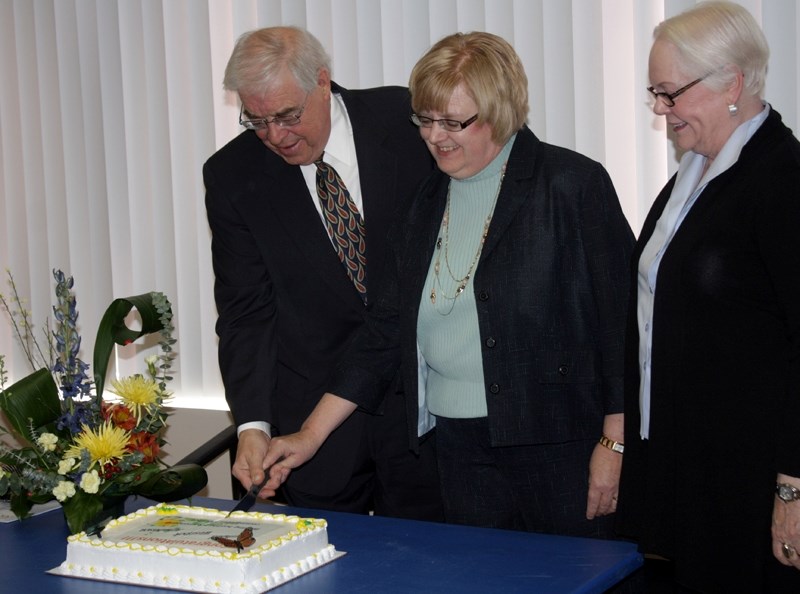Healthy Families Healthy Futures has been granted $1.1 million from the Alberta government to create a rural network to help reduce relationship violence in the Westlock, Barrhead and Athabasca areas.
The money will be delivered over three years and will help operate the ABW (Athabasca, Barrhead and Westlock) Rural Response to Relationship Violence program. The money comes from the government’s Safe Communities Innovation Fund (SCIF), and was announced May 13 in Westlock by Barrhead-Morinville-Westlock MLA Ken Kowalski.
“We need something to deal with bullying and family violence,” he said. “Family violence is a major issue, and it’s something not many people want to talk about.”
This announcement is three years in the making, Kowalski said. The idea first came up in 2007 and 2008 in government caucus, he said, when his fellow PC MLAs were discussing ways to deal with violence in the province.
Safety is paramount, he said, as is looking into the actual causes of violence in relationships.
The money, which is $373,000 each year until 2014, is being given to Healthy Families Healthy Futures because their members are on the ground and have a better understanding of what programs will work best in the area.
“Every community is unique and has its own specific needs,” Kowalski said. “This is a great way for communities to develop and tailor projects that address their local priorities.”
Westlock County reeve Charles Navratil was on hand for the announcement. He said he was pleased with the announcement, but also recognized what it meant.
“It’s terrible that we have this, but it’s good to have things in place to help,” he said.
For Navratil, the biggest thing about the announcement is the fact the money is available for three years, which means there won’t be a rush to get the planned projects off the ground.
Westlock mayor Bruce Lennon was also in attendance. He said he liked to see that this is a rural initiative, because it means the people who are developing the programming are closer to the people they will be helping. This means the services will be more personal and will have a greater chance of success.
He added that, in his role as a lawyer, he knows that what helps people solve their problems best is not repeated and sustained incarceration, but actual programs that deal with the root causes.
Healthy Families Healthy Futures executive director Linda West said the focus is on relationship violence because violence can occur in any relationship, even ones that have not yet become families.
They want to protect the victims of the violence, she said, but also hold those committing the violence accountable. She stressed the people involved all live within their communities, and she wants them to stay and be healthy.
“We hope to improve community response with this money,” she said.
West said she expects the money to start arriving in September, so in the meantime the various stakeholders will work on developing protocols for working with organizations like Victim Services, court services, churches and other agencies.
“That way, if someone discloses, people will know where to go,” she said.
There is a spirit of co-operation that is required to make an initiative like this a success, she said.
“Rural populations are too sparse to provide the same services that are in the cities, so people need to work together,” she said.
The bottom line, Kowalski said, is to make communities healthier through helping victims and fighting crime.
“This provides the time, money and space to get going,” he said.



